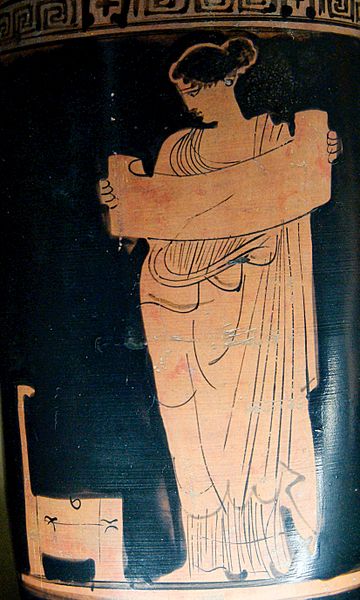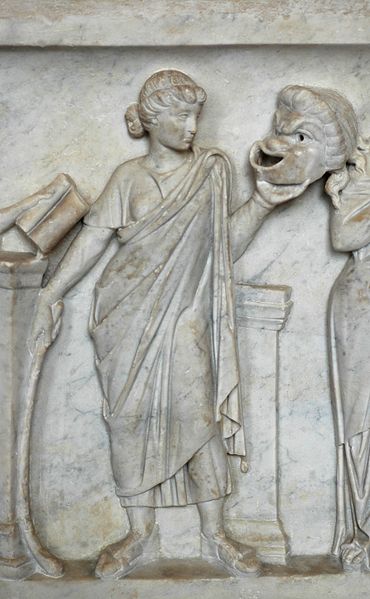The Knights was the fourth play written by Aristophanes, who is considered the master of an ancient form of drama known as Old Comedy. The play is a satire on the social and political life of classical Athens during the Peloponnesian War, and in this respect it is typical of all the dramatist's early plays. It is unique, however, in the relatively small number of its characters, and this was due to its vitriolic preoccupation with one man, the pro-war populist Cleon. Cleon had prosecuted Aristophanes for slandering the polis with an earlier play, The Babylonians, for which the young dramatist had promised revenge in The Acharnians, and it was in The Knights that his revenge was exacted. The Knights won first prize at the Lenaia festival when it was produced in 424 BC.
Knight. The Dramatis Personae in ancient comedy depends on interpretation of textual evidence. This list is based on Alan Sommerstein's translation.
Aristophanes was an Ancient Greek comic playwright from Athens and a poet of Old Attic Comedy. He wrote in total forty plays, of which eleven survive virtually complete today. These provide the most valuable examples of a genre of comic drama known as Old Comedy and are used to define it, along with fragments from dozens of lost plays by Aristophanes and his contemporaries.
Bust of Aristophanes (1st century AD)
Theatre of Dionysus, Athens – in Aristophanes' time, the audience probably sat on wooden benches with earth foundations.
Muse reading, Louvre
Thalia, muse of comedy, gazing upon a comic mask (detail from Muses' Sarcophagus)





